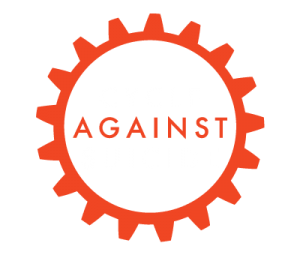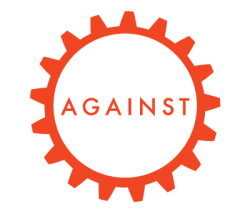The Background Problem:
There is growing concern about the mental health and wellbeing of young people in Ireland. A stark dataset exists capturing the upward trend in psychological distress reported among children and teenagers. Countless concerned voices have highlighted the inadequate resourcing of mental health services for young people which has led to unacceptable waiting times to access help. Powerful accounts in the media have conveyed the devastating impact of the delays in trying to access support and how the inaccessibility of services compounds the psychological distress for young people and their families. The experience of psychological vulnerability disempowers not just the child/teenager but their parent/s too as they struggle to know how to best support their child. Deep rooted anxiety among parent/s and caregivers about the increased rates of self-harm and suicidal acts reported among students intensify the stress of the situation stripping parents of their self-belief – a crucial tool in the often long road supporting their child’s recovery.
The Solution: What can be done to help?
Numerous studies have demonstrated that parental support is key to young people’s wellbeing and recovery. Indeed, research exploring what best helps children and teenagers recover from episodes of mental health challenge have found that the role of parent/s is crucial. One of the most constructive inputs for children and young people with mental health difficulties is to provide their parents/carers with accurate, accessible information to empower parents towards appropriate, effective action. Many parents identify this at a turning point in their child’s journey to recovery. Children and teenagers too highlight how much more secure their path to wellbeing feels when they are safe in the knowledge that their parents understand what they are going through and have a roadmap to support their recovery journey.
The need for & benefits of this course:
Educating and supporting parents in helping their children through recovery from mental illness is vital:
- It enables early identification and intervention. Parents who are educated about mental health are more likely to recognise the signs and symptoms of mental illness in their children at an early stage. This allows for timely intervention and treatment, which can significantly improve outcomes and prevent the condition from worsening.
- It enables preventive measures. Mental health education for parents goes beyond supporting a child who already a mental health difficulty. It will also equip parents with knowledge and skills to promote overall mental wellbeing and prevent the onset of mental health problems. Parents who understand risk factors, protective factors, and helpful coping mechanisms can create an environment that promotes resilience and emotional wellbeing, reducing the likelihood of their child developing mental health issues.
- Provides crucial emotional support. Parents will better understand their child’s experiences and emotions, and can offer empathy, validation, and a safe environment for their child to express their feelings. This emotional support can significantly contribute to the child’s overall wellbeing and recovery.
- Collaboration with healthcare professionals. Parents who are knowledgeable about their child’s mental health, can contribute valuable insights into their child’s behaviour, provide information on symptoms and triggers and can effectively collaborate with healthcare professionals to develop effective treatment plans. This collaborative approach enhances the effectiveness of treatment and ensures that the child receives comprehensive care, with parents being active participants in their child’s recovery journey.
- Building resilience and coping skills. Educated parents can help their children develop resilience and coping skills, which are crucial for managing mental health challenges. Parents can learn strategies to support their child’s self-esteem, problem-solving abilities and emotional regulation. By fostering these skills, parents empower their children to navigate difficulties and promote long-term recovery.
- Parental self-care; Supporting parents in their role as caregivers is essential for their own wellbeing and ability to support their child effectively. Educating parents about self-care practices, stress management techniques and available support resources can prevent parental burnout and ensure that parents have the emotional and physical capacity to assist their child in the recovery process.
- Reducing stigma. Educating parents about mental health not only benefits their own child but also empowers them to become advocates for mental health awareness and reduce the stigma surrounding mental illness. Informed parents can help dispel myths, challenge stereotypes, and promote understanding within their families, schools and communities. This creates a more supportive environment for children with mental illness, reducing the sense of isolation and fostering acceptance.
Cycle Against Suicide’s HELP Programme is designed to do exactly that – to educate and empower parents to understand and support positive mental health in their child. Accurate information instils confidence, optimism and self-belief in parents which can in turn act as a reservoir for resilience in their child when they are going through tough and troubled times.
Cycle Against Suicide’s HELP programme is an A-Z of mental health support materials designed by child psychiatry experts together with parents to help support children’s mental health recovery journey. Topics will include frequent prevalent issues such as Anxiety, ADHD, Autism, Depression, Eating Disorders and Self-Harm and other topic. The choice of media and content is based on the scientific literature and informed by what parents identify as being the most impactful. The suite of resources will include videos, resource booklets and series of ‘Frequently Asked Questions’ which will address common questions which parents ask at education evenings. A Hybrid model will be utilised which will allow in-person sessions in addition to online events.
Once curated, the Cycle Against Suicide’s HELP programme will be piloted and rolled out nationwide. The programme is designed to be made freely available to all parents.

